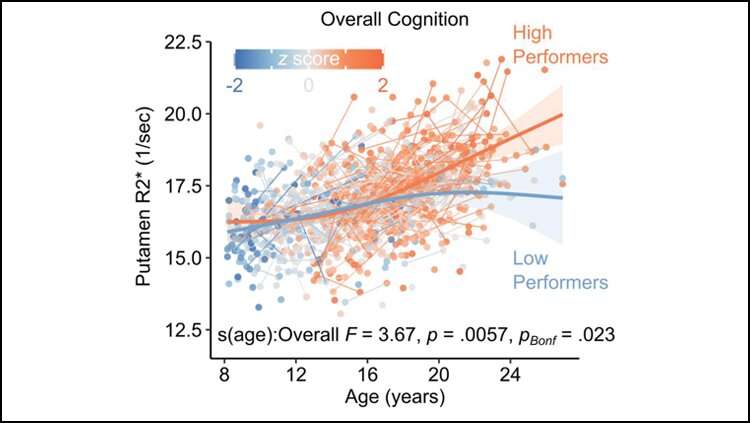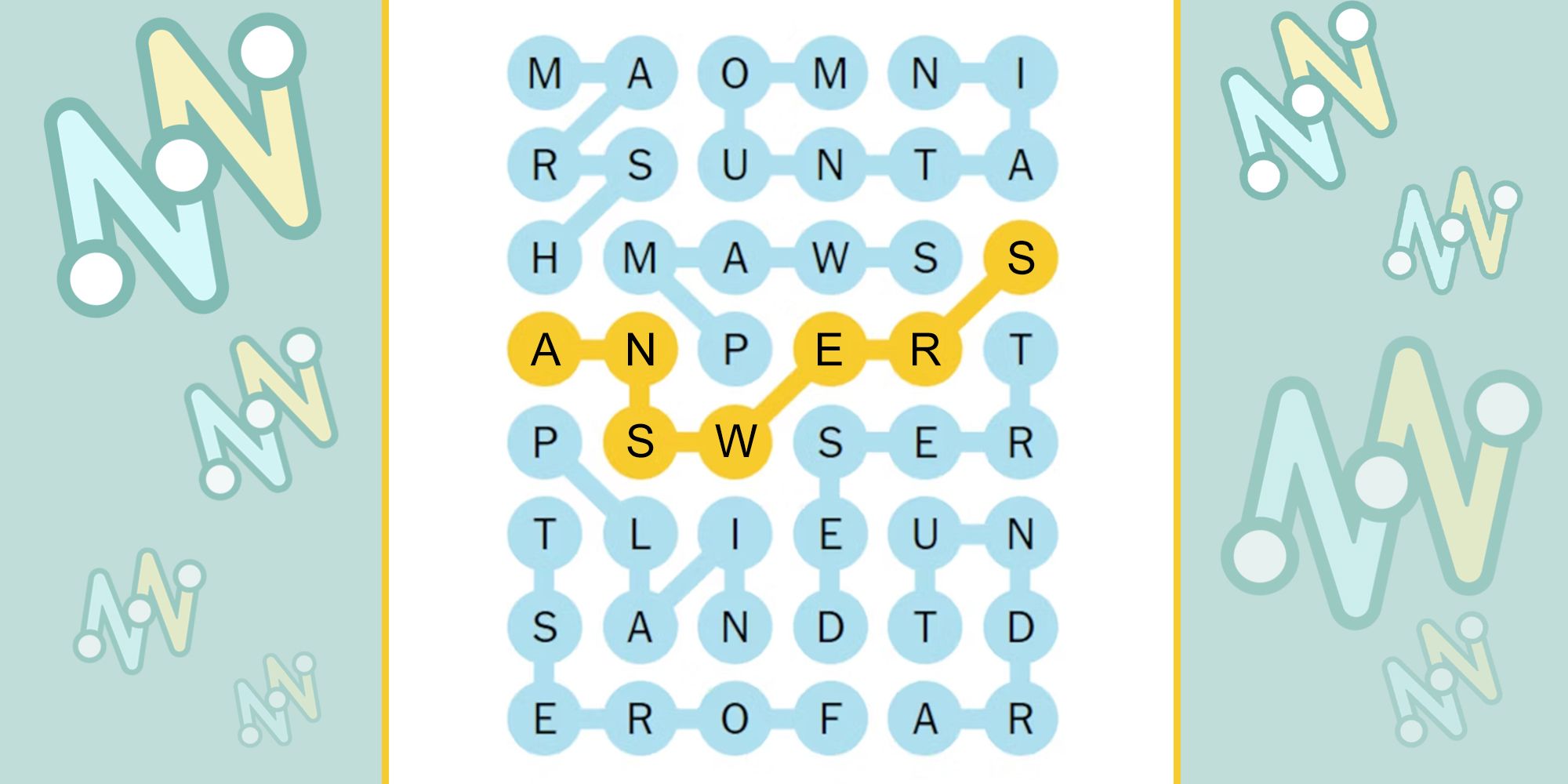The Link Between Brain Iron, ADHD, And Age-Related Cognitive Decline

Table of Contents
The Role of Iron in Brain Function
Iron is not just essential for carrying oxygen throughout the body; it plays a vital, multifaceted role in brain function. Its presence is critical for numerous neurological processes, impacting everything from neurotransmitter production to the efficient transmission of signals between brain cells. Maintaining optimal brain iron levels is crucial for healthy cognitive development and function throughout life.
-
Iron is crucial for oxygen transport in the brain: The brain is a highly metabolically active organ, demanding a constant supply of oxygen to function properly. Iron, a component of hemoglobin, is essential for carrying oxygen from the lungs to the brain. Insufficient iron can lead to oxygen deprivation, impairing brain function.
-
Iron is vital for the production of neurotransmitters: Neurotransmitters, such as dopamine and norepinephrine, are chemical messengers that transmit signals between neurons. Iron is a crucial cofactor in the synthesis of these neurotransmitters. Imbalances in iron can disrupt neurotransmission, potentially leading to cognitive deficits.
-
Iron deficiency can impair brain development and function: During crucial developmental stages, iron deficiency can severely impact brain development, potentially leading to learning disabilities and cognitive impairments. Even in adults, iron deficiency can cause fatigue, difficulty concentrating, and impaired cognitive performance.
-
Iron overload can lead to oxidative stress and neuronal damage: While iron is essential, an excess can be harmful. Excessive iron can trigger the production of free radicals, leading to oxidative stress and damage to brain cells. This oxidative stress is implicated in several neurodegenerative diseases.
Brain Iron and ADHD
A growing body of research suggests a potential link between iron deficiency or imbalance and the symptoms of Attention Deficit Hyperactivity Disorder (ADHD). While the precise nature of this relationship requires further investigation, several studies point towards a correlation.
-
Studies suggesting a correlation between iron deficiency and ADHD symptoms: Some studies have found lower serum ferritin levels (an indicator of iron stores) in children and adults with ADHD compared to their neurotypical peers. This suggests a potential link between insufficient iron and ADHD symptoms.
-
How iron deficiency might affect neurotransmitter production: As mentioned, iron is vital for the production of neurotransmitters like dopamine and norepinephrine. Iron deficiency could impair the synthesis of these neurotransmitters, potentially contributing to the inattention, impulsivity, and hyperactivity characteristic of ADHD.
-
The need for further research to establish a clear causal relationship: While correlations exist, more research is needed to definitively establish a causal relationship between iron deficiency and ADHD. Further studies are essential to determine whether iron supplementation can effectively alleviate ADHD symptoms.
-
Potential benefits of iron supplementation in managing ADHD symptoms: Some individuals with ADHD and low iron levels may experience improvements in their symptoms after iron supplementation. However, it is crucial to consult a healthcare professional before starting any iron supplementation, as excessive iron can be detrimental.
Brain Iron and Age-Related Cognitive Decline
The accumulation of iron in the brain plays a significant role in age-related neurodegenerative diseases such as Alzheimer's and Parkinson's disease. This iron accumulation contributes to the progressive decline in cognitive function associated with aging.
-
The accumulation of iron in the brain and its contribution to oxidative stress and inflammation: As we age, the brain's ability to regulate iron levels declines. This leads to an increase in iron deposition, promoting oxidative stress and neuroinflammation, both implicated in the pathogenesis of neurodegenerative diseases.
-
The link between iron overload and the formation of amyloid plaques in Alzheimer's disease: Studies suggest a strong correlation between iron overload and the formation of amyloid plaques, a hallmark of Alzheimer's disease. Excess iron may contribute to the accumulation of these plaques, exacerbating cognitive decline.
-
Strategies for managing iron levels to potentially mitigate age-related cognitive decline: Maintaining healthy iron levels throughout life may help mitigate age-related cognitive decline. A balanced diet rich in iron, regular exercise, and a healthy lifestyle are crucial.
Diagnosing and Managing Brain Iron Levels
Assessing brain iron levels requires a multi-pronged approach. While direct measurement of brain iron is challenging, indirect assessments using blood tests and advanced imaging techniques can provide valuable insights.
-
Importance of consulting healthcare professionals for diagnosis and treatment: It is crucial to consult a healthcare professional for proper diagnosis and guidance. They can assess individual needs and recommend appropriate interventions.
-
The limitations and potential risks of iron supplementation: Iron supplementation should only be undertaken under the guidance of a doctor, as excessive iron can be toxic. Blood tests to measure ferritin levels (an indicator of iron stores) are essential to determine if supplementation is necessary and to avoid iron overload.
-
The importance of a balanced diet rich in iron: Including iron-rich foods like spinach, red meat, beans, and lentils in your diet is a natural and effective way to maintain healthy iron levels. A balanced diet is crucial for overall health and cognitive function.
Conclusion:
The intricate relationship between brain iron, ADHD, and age-related cognitive decline highlights the importance of maintaining healthy iron levels throughout life. While research continues to unravel the complexities of this connection, understanding the potential impact of iron on brain health empowers individuals to make informed decisions about their cognitive well-being. Consult with your healthcare provider to discuss your individual needs and explore strategies for optimizing your brain iron levels and improving your cognitive function. Learn more about the crucial role of brain iron and its impact on your overall health.

Featured Posts
-
 Nyt Strands Spangram Solution April 3 2025
Apr 29, 2025
Nyt Strands Spangram Solution April 3 2025
Apr 29, 2025 -
 Urgent Appeal British Paralympian Missing For Over A Week In Las Vegas
Apr 29, 2025
Urgent Appeal British Paralympian Missing For Over A Week In Las Vegas
Apr 29, 2025 -
 50 000 Fine For Anthony Edwards Nba Addresses Players Fan Interaction
Apr 29, 2025
50 000 Fine For Anthony Edwards Nba Addresses Players Fan Interaction
Apr 29, 2025 -
 Auto Legendas F1 Motorral Szerelt Porsche Koezuton
Apr 29, 2025
Auto Legendas F1 Motorral Szerelt Porsche Koezuton
Apr 29, 2025 -
 Your Guide To Buying Capital Summertime Ball 2025 Tickets
Apr 29, 2025
Your Guide To Buying Capital Summertime Ball 2025 Tickets
Apr 29, 2025
Latest Posts
-
 Nevsehir De Kaygan Zemin Yueksekten Duesme Kazasinin Detaylari
Apr 30, 2025
Nevsehir De Kaygan Zemin Yueksekten Duesme Kazasinin Detaylari
Apr 30, 2025 -
 Yueksekten Duesme Kazasi Nevsehir De Kaygan Zemin Felaketi
Apr 30, 2025
Yueksekten Duesme Kazasi Nevsehir De Kaygan Zemin Felaketi
Apr 30, 2025 -
 Nevsehir De Goeruenmez Tehlike Kaygan Zemin Yueksekten Duesmeye Neden Oldu
Apr 30, 2025
Nevsehir De Goeruenmez Tehlike Kaygan Zemin Yueksekten Duesmeye Neden Oldu
Apr 30, 2025 -
 Tyumen Posle Obrusheniya Gorki Postradavshie Otkazalis Ot Gospitalizatsii
Apr 30, 2025
Tyumen Posle Obrusheniya Gorki Postradavshie Otkazalis Ot Gospitalizatsii
Apr 30, 2025 -
 Nevsehir De Yueksekten Duesme Kazasi Kayma Nedeniyle Meydana Gelen Olay
Apr 30, 2025
Nevsehir De Yueksekten Duesme Kazasi Kayma Nedeniyle Meydana Gelen Olay
Apr 30, 2025
